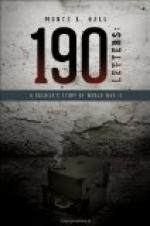it is a Shelleyan union with the most intimate, the
most inexpressible things in nature that is revealed
in such a note as the following: ’A nameless
day, a day without form, yet a day in which the Spring
most mysteriously begins to stir. Warm air in
the lengthening days; a sudden softening, a weakening
of nature.’ In describing this atmosphere,
this too sudden softness, he uses a word frequent in
the vocabulary of Shelley—’fainting.’
In truth, like the great English poet, whom he seems
not to have known, he seeks from the beauty of things
a faculty of self-forgetfulness in lyrical poetry,
an inexpressible and blissful passing of the poet’s
being into the thing he contemplates. What he
makes his own in the course of those weeks, what he
remembers afterwards, and what he would recall, never
to lose it again, is the culminating moment in which
he has achieved self-forgetfulness and reached the
ineffable. The simplest of natural objects is
able to yield him such a moment; see, for instance,
this abrupt intuition: ’I had lapsed from
my former sense of the benediction of God, when suddenly
the beauty—all the beauty—of
a certain tree spoke to my inmost heart; and then
I understood that an instant of such contemplation
is the whole of life.’ And still more continuous,
still more vibrant, is at times his emotion, as when
the bow draws out to the utmost a long ecstatic tone
from a sensitive violin. ’What joy is this
perpetual thrill in the heart of Nature! That
same horizon of which I had watched the awakening,
I saw last night bathe itself in rosy light; and then
the full moon went up into a tender sky, fretted by
coral and saffron trees.’ It is very nearly
ecstasy with him in that astonishing Christmas night
which no one then at the front can ever forget—a
solemn night, a blue night, full of stars and of music,
when the order and the divine unity of the universe
stood revealed to the eyes of men who, free for a
moment from the dream of hatred and of blood, raised
one chant along six miles, ‘hymns, hymns, from
end to end.’
Of the carnage in February there are a few precise
notes, sufficient to suggest the increasing horror.
The narrative grows quicker; the reader is aware of
the pulse and the impetus of action, the imperious
summons of duty; the young sergeant is in charge of
men, and has to execute terrible tasks. But ever
across the tumult and the slaughter, there are moments
of recollection and of compassion; and, in the evening
of a day of battle, what infinite tranquillity among
the dead! At this period there are no more notes
of landscape effects; the description is of the war,
technical; otherwise the writer’s thought is
not of earth at all. Once only, towards the end,
we find a sorrowful recollection of himself, a profound
lamentation at the remembrance of bygone hopes, of
bygone work, of the immensity of the sacrifice.
’This war is long, too long for those who had
something else to do in the world! Why am I so
sacrificed, when so many others, not my equals, are




